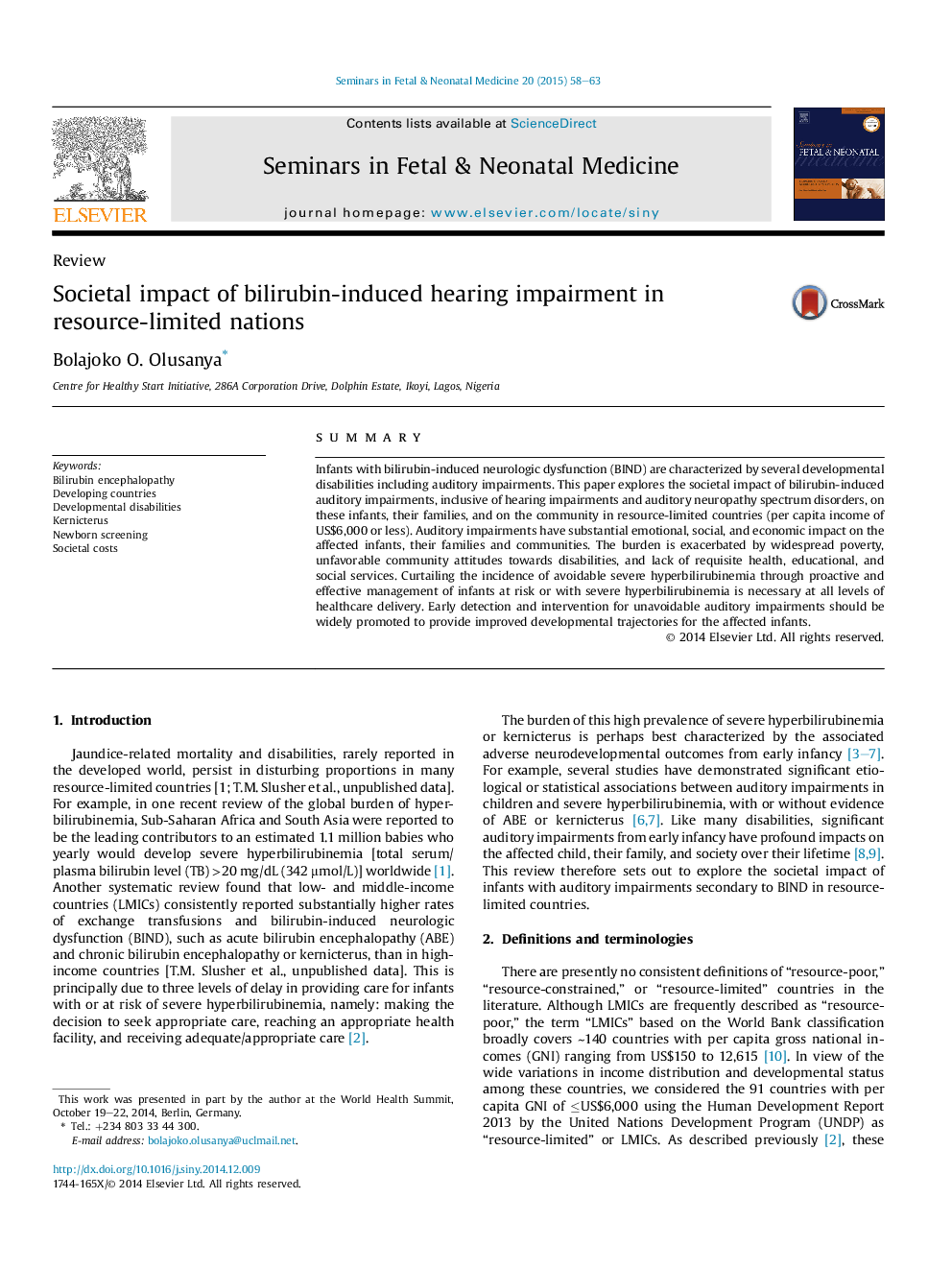| Article ID | Journal | Published Year | Pages | File Type |
|---|---|---|---|---|
| 3974088 | Seminars in Fetal and Neonatal Medicine | 2015 | 6 Pages |
SummaryInfants with bilirubin-induced neurologic dysfunction (BIND) are characterized by several developmental disabilities including auditory impairments. This paper explores the societal impact of bilirubin-induced auditory impairments, inclusive of hearing impairments and auditory neuropathy spectrum disorders, on these infants, their families, and on the community in resource-limited countries (per capita income of US$6,000 or less). Auditory impairments have substantial emotional, social, and economic impact on the affected infants, their families and communities. The burden is exacerbated by widespread poverty, unfavorable community attitudes towards disabilities, and lack of requisite health, educational, and social services. Curtailing the incidence of avoidable severe hyperbilirubinemia through proactive and effective management of infants at risk or with severe hyperbilirubinemia is necessary at all levels of healthcare delivery. Early detection and intervention for unavoidable auditory impairments should be widely promoted to provide improved developmental trajectories for the affected infants.
